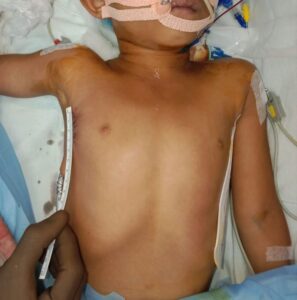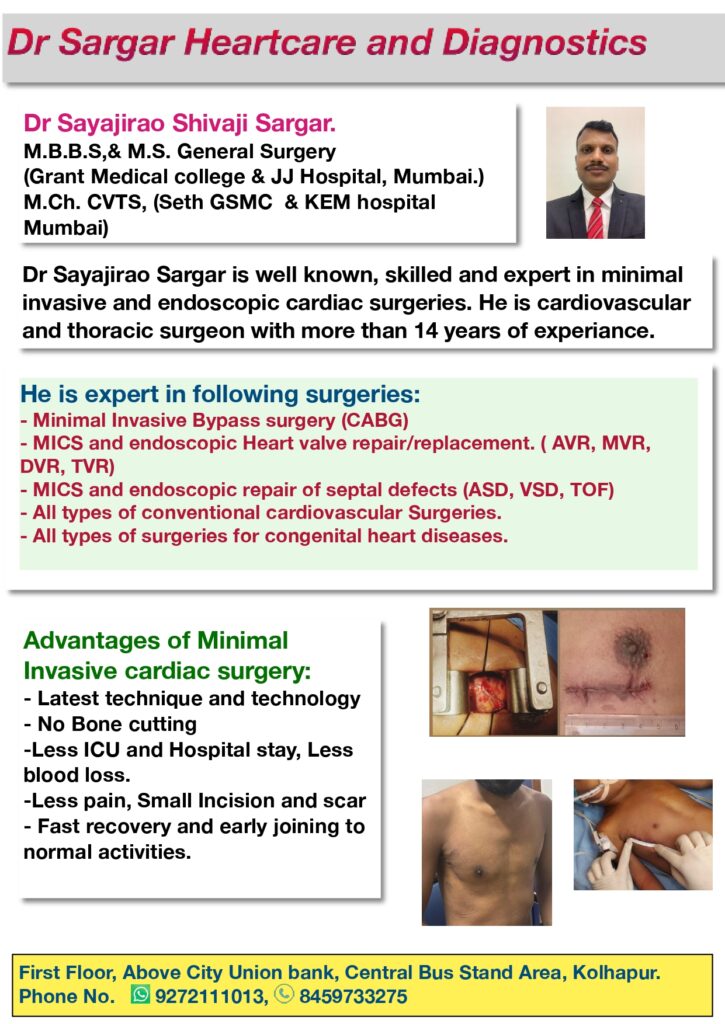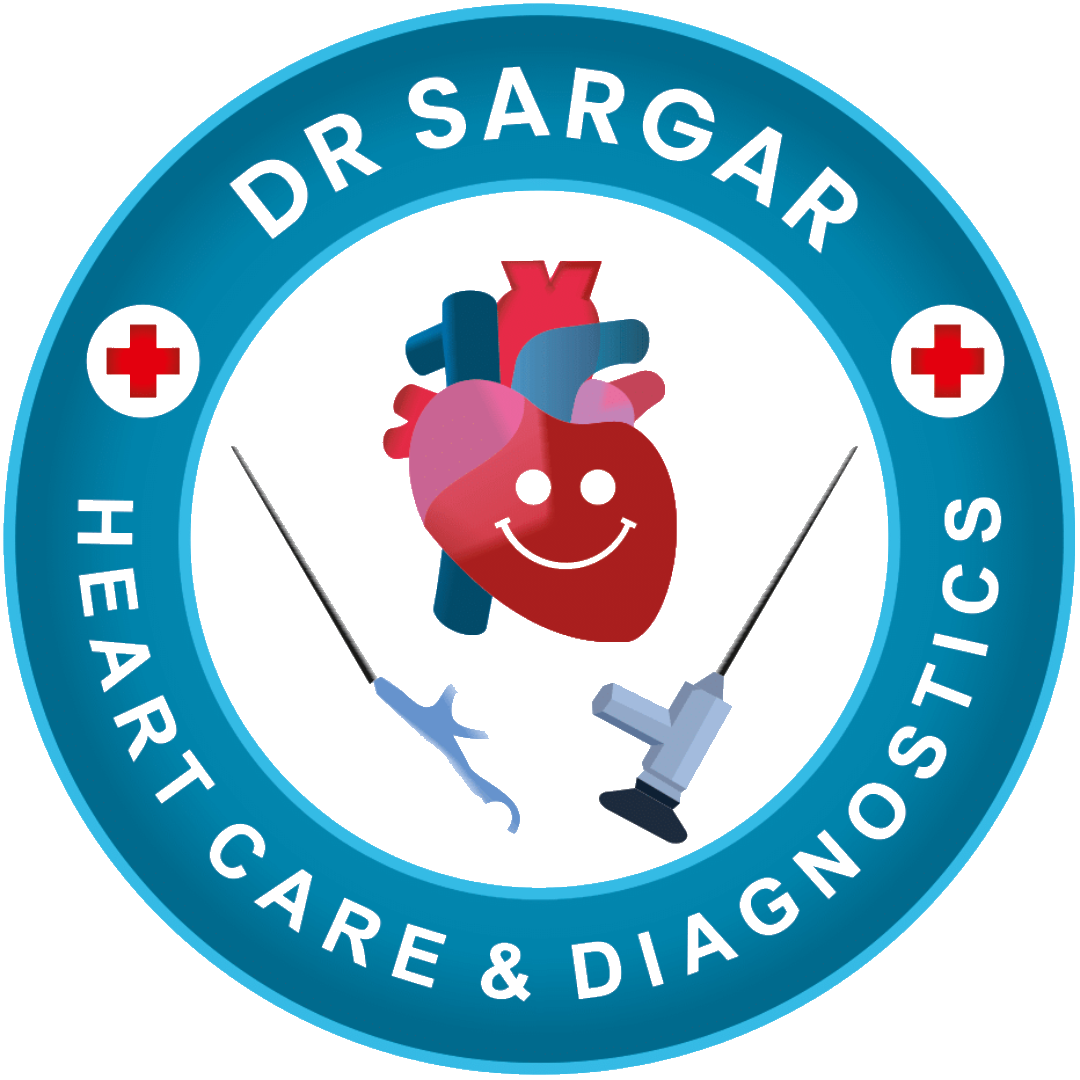Dr Sayajirao Shivaji Sargar has completed his MBBS degree and post graduation in MS
General Surgery from prestigious Grant Medical College and sir JJ Group of Hospitals, Mumbai.
He has done Super specialisation M.Ch in Cardiovascular and thoracic surgery from Seth G.S.
Medical College and KEM hospital Mumbai. He has more than 15 years of experience in
cardiovascular and thoracic surgery. He has special interest in minimal invasive and endoscopic
cardiovascular surgery. He is doing minimal invasive cardiac surgeries since more than 10 years
and has done more than 3000 successful cardiovascular procedures. He has published many
publications in different journals.
He is working at Dr Sargar Heart care and Diagnostics in Kolhapur.
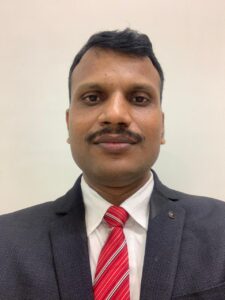
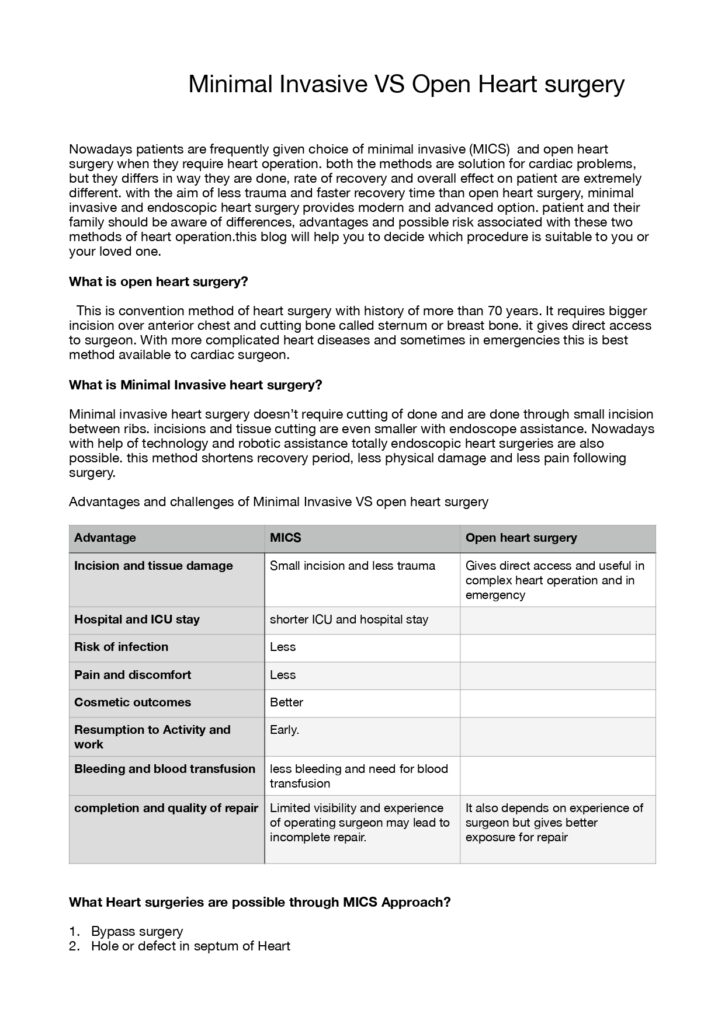
- Valve replacement and Valve repairs.
- Different types of congenital heart diseases like ASD, VSD, TOF, PDA, BDG, PAPVC, Valve
repairs.
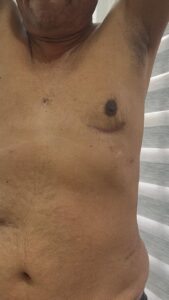
Redo Triple Heart Valve Surgery in Kolhapur
Redo heart surgery is usually done in old age patients but sometimes needed in young
patients also. Indian heart surgeons are one of best in world. few of them have expertise in doing
redo heart surgeries.
Redo Heart surgery details:
This surgery was more complex, bigger and time consuming than first surgery. After first hear
operation, heart gets stuck to surrounding tissue by adhesions. Hence it has to be freed from
these adhesions before putting patient on heart lung bypass machine. Heart lung machine is
special machine used during heart surgeries which keeps oxygenated blood circulating in body
with adequate pressure and oxygen. After putting patient on bypass valves implanted in previous
operation are removed and replaced with new valves. As previous valve are sutured to native
annulus of heart valves it gets stuck and endothelised and difficult to remove, it takes more time
and expertise to replace these heart valves.
This was 33 year old patient operated 9 years back and had got two valves replaced with
bioprosthetic valves. Bioprosthetic valves are tissue valves prepared from pig or bovine tissue.
Tissue valves have limited life of 8-20 years, but may sometime degenerate early depending on
type of valve and patient factors. Compared to tissue valve prosthetic valves are made up of
metals and different alloys and synthetic materials which last longer. Major disadvantage of
prosthetic valve is, after valve replacement patient need to take medicines to keep his/her blood
thinner to avoid blood clotting which can be life threatening. This patient had got bioprosthetic
valves implanted at aortic and mitral position nine years back and now they are degenerated and
not functioning as it should, it was decided to replace it with prosthetic or metallic valves. In
addition to these two degenerated valves right sided valve named tricuspid valve was leaking so it
was decided to repair right sided tricuspid valve. So this young patient got redo heart surgery with
replacement of two valves and right sided one was repaired.
Redo surgery is complex operation, one needs to careful selection of surgeon who has
good experience in such surgeries, is advisable.
Dr Sayajirao Sargar is one of India’s leading heart surgeon in field of redo heart surgeries.
Risk of redo heart surgery in Dr Sargar’s hands is low as in first time heart surgery, in standard
operations this is as low as 1%.
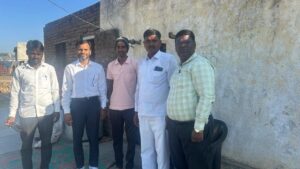
Minimal Invasive Coronary artery Bypass Surgery in
Kolhapur: A Game changer in heart surgery
Coronary artery bypass surgery has been gold standard for coronary artery disease (CAD).
Traditionally, CABG involves sternotomy or large incision through front bone of chest also called
breast bone. Though it is highly effective gives direct access to heart for surgeon, this approach is
more invasive comes with extended recovery time of approximately 3 months, and risk of
complications, like more pain, blood loss and wound infection.
MICS CABG is heart operation for blocked arteries without need of sternotomy, surgeon
makes small cut in between ribs and using special instruments bypass operation is performed.
In this method heart operation is done under direct vision. other method are endoscopic assisted,
totally endoscopic heart operation with or without robotic assistance. Internal mammary artery or
radial artery or great saphenous vein from leg are used to bypass blocked artery. this grafts can
be harvested endoscopically.
65 years old male from konkan region was diagnosed with critical coronary artery
blockages with decreased heart function with Ejection fraction of 30%. though patients with low
ejection fraction are high risk few minimal invasive heart operation, Dr Sayajirao Sargar a leading
minimal invasive cardiac surgeon in Maharashtra offered to do this operation through minimal
invasive approach after discussion about advantages and risk involved with patient and relatives.
patient underwent successful bypass operation with triple bypass using internal mammary artery
ans leg vein. ICU stay for this complicated and high risk operation was only two days. patient and
relatives were very happy and grateful for successful minimal invasive bypass operation in this
high risk case
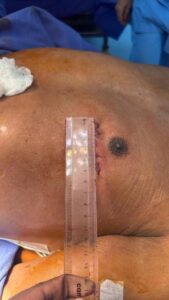
Minimal invasive heart valve replacement operation.
Valve repair or replacement is mode of treatment for patients with diseased heart valves.
conventionally sternotomy is method of choice for valve repair and replacement. It gives better
exposure and ease for complete repair of heart valve.
Minimal invasive heart valve replacement is new era for patients with heart valve diseases.
it can be done with or without endoscope assistance and totally endoscopic as well. Another
method for valve repair or replacement is robotic heart valve repair and replacement.
This was 35years old patient who had severe mitral valve valve stenosis with history of previous
surgery done 12 years back. As young and active person he wanted minimal invasive heart
surgery. Dr Sayajirao Sargar operated him with small right axillary thoracotomy with just 4 cm
incision. His diseased valve was replaced with metallic valve. he had very quick recovery, no
blood transfusion was required, less postoperative pain and he could join his routine in just 10
days after heart operation.
Dr Sayajirao Sargar is expert in minimal invasive heart surgery. His
availability in Kolhapur as minimal invasive heart surgeon is boon for patients with heart problems
in western Maharashtra, Konkan, North Karnataka and Goa.
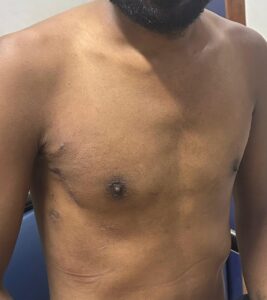
Minimal Invasive heart surgery in children: New Horizon
Dr Sayajirao Sargar is one the expert surgeon in field of minimal invasive cardiac
surgery in children with congenital heart defects. He and his team have done maximum
number of cases through this new innovative approach, which have many advantages over
conventional open heart surgery in paediatric cases.
In contemporary cardiac surgery, minimally invasive approaches have emerged as
the preferred choice and are being increasingly used for simple congenital cardiac cases
as well. Extensive scientific literature has emerged supporting this technique. Over time,
this approach has been widely discussed and recognised as a safe option within the
paediatric population as wellThis trend is facilitated by advancements in cannulae,
instruments, and per- fusion technology, rendering such procedures increasingly
reproducible, safe, and cost-effective.
Despite these advancements, many centres worldwide, including those in India,
continue to rely on the midline sternotomy approach for repairing congenital heart defects
(CHDs). However, there is a growing body of literature reporting on the efficacy of
minimally invasive surgery for treating simple congenital cases. Notably, most studies
conducted in India have focused on atrial septal defects (ASDs), predominantly utilising
peripheral cannulation techniques. Limited data over the past three decades regarding
minimally invasive cardiac surgery (MICS) for CHDs may be partly attributed to the
extensive training period required for cardiac surgeons. After completing residency, it
typically takes an additional 4–5 years for surgeons to undergo paediatric subspecialty
training. Furthermore, proficiency in MICS demands considerable expertise in both
congenital cardiac surgery and minimally invasive techniques.
Minimally invasive approaches offer safe and effective options for repairing simple
congenital lesions, yielding favourable cosmetic outcomes without compromising surgical
efficacy. Dr Sayajirao Sargar had published paper and their findings suggest outcomes
comparable to conventional sternotomy approaches.
